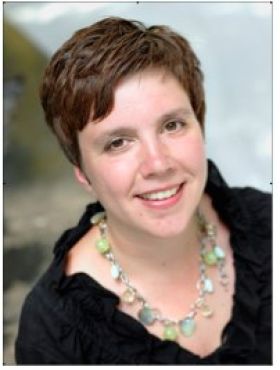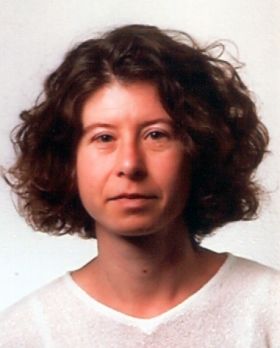Course Overview
Brain, lifestyle and learning
Our brain continues to develop throughout childhood and adolescence. It becomes fully matured only after the age of twenty. This development is influenced by environmental factors such as physical activity, nutrition, and the amount and quality of sleep. Would you like to learn how environmental factors affect the functioning of adolescent brains? Are you interested in the effect upbringing has on this?
This MOOC will examine these factors in greater depth. After an introduction to the general theme, it will cover subjects such as physical activity and learning; nutrition and learning; and sleep and learning. In addition the role of upbringing for learning will also be discussed. Are you interested in research? Then you can also delve deeper into these subjects through more advanced learning material and assignments.
From 15th of July 2016 the MOOC will be opened for self-study, without support from teachers.
The MOOC contains eight lessons, a short introductory lesson and six lessons on the topic, each of approximately 3 - 5 hours study load without additional material. The lessons are designed as a sequence, but each can be taken and completed separately should you wish so. Lesson 7 is an integration lesson that allows you to consolidate your knowledge and the topics. It also contains a questionnaire we hope that you will complete to help us evaluate and improve the MOOC. Furthermore in lesson 8 you will find two questionnaires that will help us evaluate your experiences with the EMMA platform and use that to improve the EMMA platform. We appreciate your assistance in completing all questionnaires.
You can start at various moments and still gain sufficient meaningful learning experiences if you have little time for learning. The learning materials consist of short introduction texts, interviews with experts and learning activities and assignments that you can find on the EMMA platform.
The MOOC has been designed in Dutch. Part of the content will be translated into English, however additional study materials could be available in English only. Videos are either Dutch or English spoken.
Learning together with others
Learning in a MOOC does not have to be a solitary experience. You can communicate with others, provide examples and share experiences and examples with others using social media such as Twitter. We refer to twitter in a number of assignments and advise to use hashtags #BLLMOOC for the assignments in this MOOC and in case you would like to share your experiences with others, e.g. via twitter or other social media channels. Use of twitter is not compulsory.
Learning materials and copyrights
The MOOC makes use of existing material and video recordings developed for online masterclasses that had been offered by the Open University in the recent past. Although the context of these video recordings might not fully fit the context of this MOOC, the content is still very up-to-date and relevant. The content of the lessons and learning activities of these MOOC are made available under the Creative Commons licence CC BY-NC-SA. Other learning materials such as documents, references to other websites, Youtube videos, et cetera might have additional copyright and author rights and can’t be used without permission. Moreover, nor the Open Universiteit nor EMMA are responsible, nor control or endorse these external resources and websites. No rights can be attached to this information.
Learning Objectives
Having completed this MOOC you will have sufficient basic knowledge about the impact of environmental factors upon learning of adolescents.
In this course you will learn
- how learning can be explained from the perspective of neuroscience;
- which environmental factors determine learning in general and learning of adolescents in particular;
- how physical activity, nutrition, sleeping and nurture influence learning of adolescents;
- what evidence there is concerning the impact of these environmental factors;
- what practical implications the knowledge you build in this course can have for you as a parent, as a teacher or a policy maker.
Furthermore, lessons and materials of this MOOC will introduce you to methods and technics applied in research of psychological and biological determinants of learning.
Certification and Additional Info
You can receive a letter of particpation in this MOOC is you have visited at least 70% of all pages of the course. This letter of particpation will be generated by EMMA progress tool automatically once you have completed the course.
Beware: you need to visit each page that you want to have included in the count of visited pages.
Course Structure
- Lesson 1 - Getting to know EMMA and the topic of the MOOC
- Lesson 2 - How does the adolescent brain learn?
- Lesson 3 - Nutrition and learning
- Lesson 4 - Sleep and learning
- Lesson 5 - Physical Activity and Learning
- Lesson 6 - Nurture and learning
- Lesson 7 - Integration
- Lesson 8 - Your experience with EMMA
Teacher
Renate de Groot
Renate de Groot is Associate Professor at the Welten Institute, Open University of the Netherlands. Renate’s scientific interest is centred on the biopsychological determinants (physical activity, nutrition, and sleep) of learning and cognition in lifelong perspective. Both observational studies as well as intervention studies are part of her core business. Renate’s scientific input has up till now resulted in about fifty publications in peer reviewed scientific journals.

Tutor
Francis Brouns
Dr. ir. Francis Brouns started in 1998 at the Welten Institute (formerly CELSTEC), the Research Centre for Learning, Teaching and Technology of the Open Universiteit. Her research is on developing innovative learning environments and supporting lifelong learners, with a particular focus on collaborative and social learning, peer support, learning networks and MOOCs.

Tutor
Olga Firssova
Dr. Olga Firssova is Assistant professor at WELTEN Institute, Centre for Learning, Teaching and Technology, Open University Netherlands. Firssova has been involved in course and curriculum design, quality assurance and evaluation projects at the OU for 10 years and has been teaching various courses at the Master of Educational Science program. Research interests and areas of expertise include course and curriculum design, academic writing and design for inquiry-based learning with technologies. Knowledge construction in Massive Online courses is her new research interest. Currently Olga is involved in two European projects: weSPOT (working environment for inquiry-based learning) and EMMA (European Multiple MOOC Aggregator).




